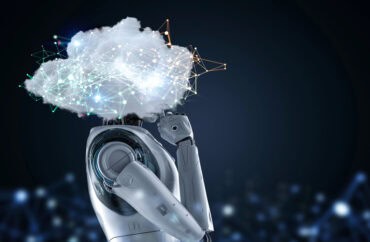
Pharmaceutical giant AbbVie and the U.S. Air Force flex some AI muscle, multiple partnerships aim to leverage AI in financial services and the edge, and more.
Keeping pace with news and developments in the real-time analytics market can be a daunting task. We want to help by providing a summary of some of the items our staff came across each week. Here is a short list of some news from this week:
AbbVie, the global pharmaceutical company, is leveraging artificial intelligence (AI) and natural language processing (NLP) for research translation, improving collaboration and search capabilities to enable the discovery of new treatments for patients. The solutions include:
- Abbelfish Machine Translation is a language translation service originally designed for German to English translation, which has expanded to include Spanish, Italian, French, Portuguese, Russian, Chinese, and Japanese. Over one million texts are translated each year with the Abbelfish service, using up to 10 concurrent translations per minute.
- AbbVie Search is a question and answer-based search tool for biomedical research, based on the BioBERT transformer model. AbbVie Search allows a researcher to ask a question, such as “What is the most common species of Human Coronavirus among adults,” with the system quickly responding with the answer, “HCoV-OC43,” including a collection of relevant scientific articles and clinical notes.
IBM and Samsung announced they are building on their strategic global partnership to help businesses develop new 5G, edge, and open hybrid cloud solutions. The two will use Samsung’s Galaxy 5G mobile devices with advanced end-to-end enterprise network solutions and IBM’s network management, hybrid cloud, and edge computing offerings. Combined, these offerings can be used to develop industry solutions that integrate AI and are built on Red Hat’s open architecture. The work builds on recent efforts where the two companies have collaborated on next-generation 5G and edge offerings through the IBM Cloud for Telecommunications.
H2O.ai announced the release of H2O Wave, a lightweight development framework that lets users, with just a few lines of Python, develop applications in real-time, powered by industry-leading AI technology. H2O Wave, an open-source offering, makes it easy for data scientists, machine learning engineers, and software developers to develop real-time interactive AI apps with sophisticated visualizations. H2O Wave accelerates development with a wide variety of user-interface components and charts, including dashboard templates, dialogs, themes, widgets, and more.
Iguazio announced that it has launched a production-ready integrated feature store. The feature store, which sits at the heart of its data science platform, lets businesses catalog, store, and share features for the development and deployment of AI in hybrid multi-cloud environments and is built to handle real-time use cases. The Iguazio unified online and offline feature store, integrated within its data science platform, provides next-level automation of model monitoring and drift detection, enables training at scale, and running continuous integration and continuous delivery (CI/CD) of machine learning (ML). It plugs seamlessly into the data ingestion, model training, model serving, and model monitoring components of the platform. The feature store is built on Iguazio’s open-source MLOps framework, MLRun, enabling contributors to add data sources and contribute additional functionality.
Digital.ai, the creator of the intelligent Value Stream Platform, today announced that it has been granted four U.S. patents for advances in AI-powered analytics. The patents represent industry-leading innovations in applying artificial intelligence (AI), machine learning (ML), and automation techniques to address key challenges business and IT leaders face in driving higher levels of performance within their organizations.
Platform9 introduced a cloud-ready, fully managed bare metal solution: Platform9 Managed Bare Metal. Using it, businesses can transform their installed physical servers into bare-metal clouds. Additionally, with Platform9 Managed Bare Metal, businesses can build out private and edge clouds, allowing quick deployment of bare metal clouds, virtualization stacks, and containers with Kubernetes.
DataRobot introduced automatic Bias & Fairness Testing to identify bias in models with protected features such as gender and ethnicity, then provide guidance to resolve upstream issues and prevent bias from reoccurring in the future. With Bias & Fairness Testing, users can define protected dataset features, and through a guided workflow, choose the most appropriate fairness metric to fit their specific use case. If bias is identified, the Cross-Class Data Disparity tool surfaces the root cause and identifies mitigation steps for future models. The company also unveiled enhancements to the platform’s key capabilities – including MLOps, Automated Time Series, and Visual AI – to accelerate the value organizations get from their AI models.
The National Council for Artificial Intelligence (NCAI), a newly formed group, brings together leading organizations across the U.S. financial services, technology, and academic industries with the goal of maximizing technology to jointly solve specific issues of interest to the industry. Council members include the Brookings Institution, CUNY, the Federal Reserve Bank of New York, Mastercard, Microsoft, Nasdaq, Plug and Play, SUNY, University of Central Florida, and Visa. The NCAI board, composed of volunteer senior executives acting as advisors to the council on behalf of their company or organization, will work to co-create AI solutions for positive societal and financial impact, identify and set the AI strategy and vision for a wide range of projects, and track AI adoption progress. Each member organization has nominated its own AI ambassadors to serve as regional leads and drive programs.
Synaptics announced the Katana Edge AI platform, addressing a growing industry gap for solutions that enable battery-powered devices for consumer and industrial IoT markets. The platform combines Synaptics’ proven low power SoC architecture with energy-efficient AI software, enabled by a partnership with Eta Compute. It features a multi-core processor architecture optimized for ultra-low-power and low latency voice, audio, and vision applications. The full system combines proprietary power and energy-optimized neural network and domain-specific processing cores, significant on-chip memory, and extensive use of multiple architectural techniques that save power for each mode of operation. The Katana Edge AI platform can be combined with Synaptics’ wireless connectivity offerings to provide complete system-level modules and solutions.
Veritone, creator of the operating system for artificial intelligence (AI), aiWARE, today announced the public launch of Veritone Automate Studio, a low-code, web-based workflow designer tightly integrated with aiWARE. Automate Studio helps organizations embarking on intelligent process automation (IPA) and hyperautomation initiatives to rapidly deploy AI-powered workflows without heavy coding and AI expertise and integrate resulting content insights into legacy applications and business processes at scale.
In brief:
The U.S. Air Force allowed an artificial-intelligence algorithm to control sensor and navigation systems on a U-2 Dragon Lady spy plane in a training flight, officials said, marking what is believed to be the first known use of AI onboard a U.S. military aircraft.
Red Hat announced the ability to run and manage Windows Containers through Red Hat OpenShift. The ability to manage both Linux and Windows-based containerized workloads side-by-side eliminates the need for parallel software stacks in environments across the hybrid cloud.
Kebotix, a U.S.-based technology platform company for new chemicals and materials, today announced Kebotix Canada, a wholly-owned subsidiary that will focus on AI and ML development.
Anyon Systems Inc. (Anyon) announced that it will deliver Canada’s first gate-based quantum computer for the Department of National Defense’s Defence Research and Development Canada (DRDC).
Beyond Limits, an industrial and enterprise-grade AI technology company, announced it is working with NVIDIA to advance its initiative for bringing digital transformation to the energy sector.
AMAX’s HPC and AI Solution Group announced that it is now offering a range of AceleMax workstations for AI, rendering, and visualization featuring the new NVIDIA RTX A6000 GPU.
If your company has real-time analytics news, send your announcements to ssalamone@rtinsights.com.
In case you missed it, here are our most recent previous weekly real-time analytics news roundups:





























